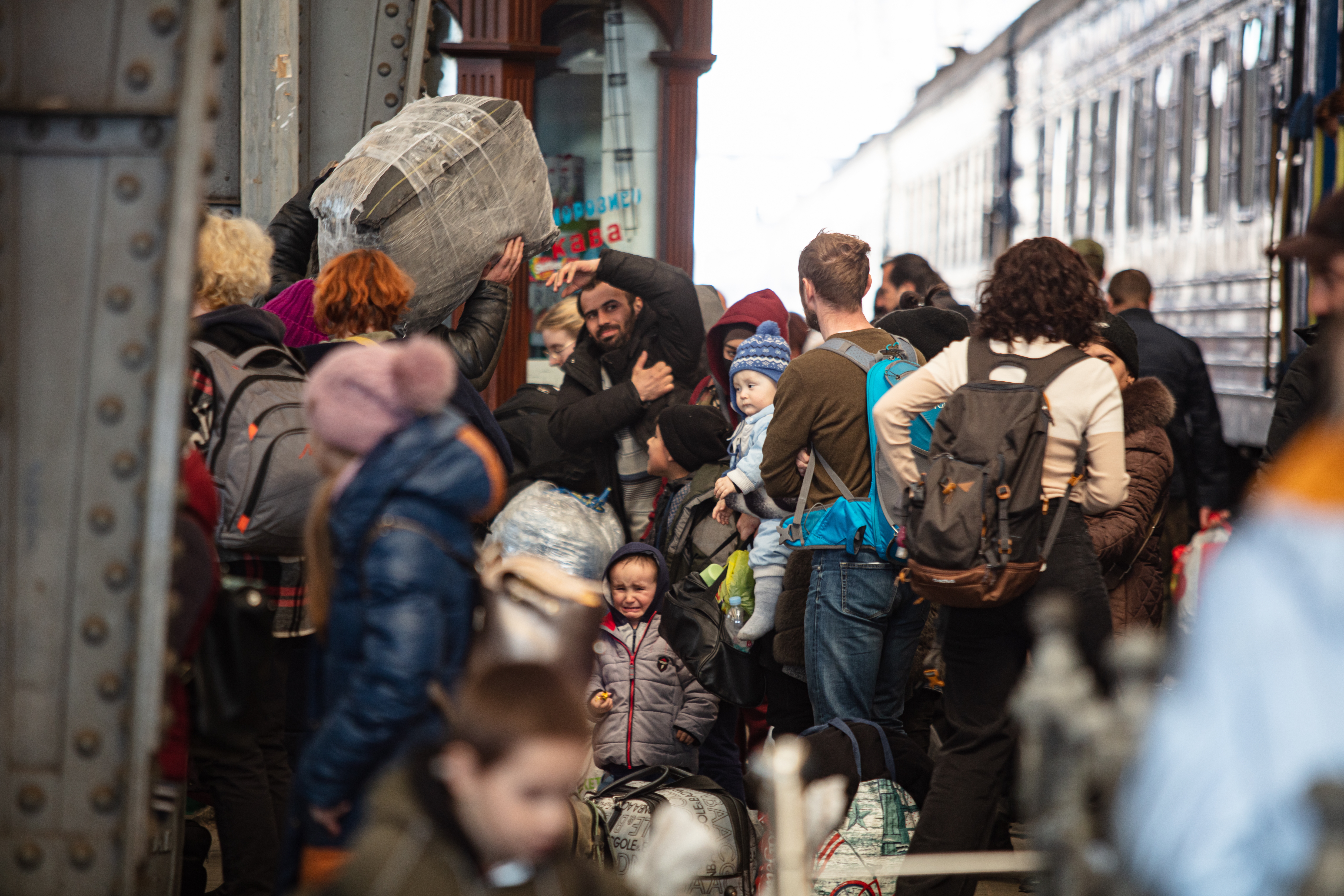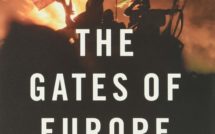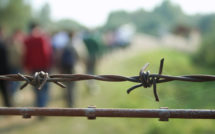
This interview is part of the SECUREU network activities
Earlier this year, on July 3-9, 2022, the University of Amsterdam and The Netherlands Institute for Advanced Study in the Humanities and Social Sciences (NIAS-KNAW) hosted a summer school entitled The Securitization of “Undocumented Migrants” and Empowerment Activities of Civil Organizations. This summer school was organized as part of the Jean Monnet project SECUREU (The Securitization of Migrants and Ethnic Minorities and the Rise of Xenophobia in the EU). It explored the role of allies and supporters, such as civil society organizations, acting on behalf of undocumented migrants. Participants had a chance to learn more about the evolution of local and national migration policies in the Netherlands and the program culminated in field research visits to Utrecht, Rotterdam, and Amsterdam. The summer school welcomed students from diverse research backgrounds and in this interview series, we would like to further introduce their perspectives and work. In this interview, we introduce Gülce Şafak Özdemir, a PhD researcher at Universitat Pompeu Fabra.
—Rusudan Zabakhidze for SECUREU
SECUREU Thank you, Gülce, for your active engagement in the summer school and for your willingness to share more about your current work. Can you tell us about your background?
Gülce Şafak Özdemir I am a Ph.D. researcher at the Political and Social Sciences Department, Universitat Pompeu Fabra in Barcelona. I am currently writing my PhD dissertation under the supervision of Professor Matthias vom Hau from the Institut Barcelona d’Estudis Internacionals (IBEI). I hold a master’s degree from the Migration Studies Program at Universitat Pompeu Fabra and a bachelor’s degree from the Department of Political Science and International Relations, Bogazici University in Istanbul, Turkey. I was a visiting Ph.D. researcher in the European University Institute in Florence-Italy between March-June 2022, supervised by Professor Elias Dinas. From September 2022, I will be conducting research at the Max Planck Institute for Ethnic and Religious Diversity, supervised by Professor Steven Vertovec. Apart from my interest in migration, I am also interested in ethnic and religious minorities. In this regard, I worked as a consultant for the Addressing Group-Based Inequalities Project at the United Nations University World Institute for Development Economics Research. As of September 2022, I will be working as a research assistant for a European Research Council project entitled States, Nationalism, and the Relationship between Ethnic Diversity and Public Goods Provision (ETHNICGOODS).
SECUREU Can you tell us more about your current research and its focus?
Gülce Şafak Özdemir I have expertise in the geopolitics of the cities and their prominent link to migration governance. In my Ph.D. dissertation, I uncover the role of the European local governments and civil society organisations for the reception and integration of irregular migrants, whose presence is not legally recognized in the given country. My Ph.D. project consists of three interrelated articles. In the first article, I developed an urban solidarity typology based on constellations of urban policies and practices for irregular migrants across 13 global cities in Europe (e.g., Amsterdam, Barcelona, Berlin, Brussels, Milano, Madrid, Paris, Vienna and so on) with diverse sizes and positions. This article is currently in a second round of review in the Journal of Cities (Q1). Following this, I have been working on the second article with the purpose of understanding the conditions in which a city becomes a refugee city. To this end, I employ qualitative comparative analysis on the same group of cities as the previous paper. These two articles indicated that Barcelona is an ideal case to work on in terms progressive local policies and proactive civil society for irregular migrants. Yet, I was curious about what are the experiences of irregular migrants living in Barcelona. That is why the last article of my dissertation is a case study based on interviews conducted with irregular migrants in Barcelona to understand what the opportunities and challenges are living in a welcoming city.
SECUREU Can you share with our readers what inspired you to pursue PhD studies and subsequently your research?
Gülce Şafak Özdemir What inspired me to pursue a PhD is a combination of many factors, of course. Butt I can say the lure of academia has existed in my life since my childhood as a daughter of an ambitious sociologist. In Istanbul, during my bachelor`s degree in 2014, I had a chance to do an internship at the Helsinki Citizen`s Assembly which is an organization that helps migrants obtain refugee status. Witnessing the challenges migrants face encouraged me to pursue my career in migration studies. Related to my interest on asylum seekers and refugees, I wrote my masters thesis on various solidarity practices for refugees and asylum seekers in Barcelona. I conducted interviews with policy makers and other stakeholders, which opened windows of opportunity for me to become more familiar with actions taken in Barcelona for irregular migrants too. It led me to become an enthusiastic urban scholar who works on the cities that generate urban solidarity for irregular migrants who are neglected by the national states.
SECUREU SECUREU’s research explores the securitization of migrants and its consequences for xenophobia in the context of the recent EU refugee crisis, which has fundamentally transformed EU migration policy but also led to contrasting reactions by individual countries. Your own research stands very close to the themes of our project. Can you share with us what observations you have made by comparing urban solidarity towards undocumented migrants across European Cities?
Gülce Şafak Özdemir SECUREU has very inspirational projects indeed. My research is highly related to migration policies of the member states. I look at how they are transformed as a response to various crises including COVID-19, the Ukrainian refugee crisis, and so on. In my research, I developed an urban solidarity typology by comparing the global cities of Europe. While local government and local civil society organizations build alliances to provide help to irregular migrants in some cities like Amsterdam, Barcelona, Berlin, Milan, and Vienna, they have contentious relations in Brussels, Rome, and Paris. There are other sets of cities including Madrid, Stockholm, Budapest, and Prague that did not generate any particular relation between the above-mentioned actors. This mapping of the cities with diverse sets of policies and practices indicates that urban solidarity for irregular migrants is not a standardized recipe for each locality. Yet, it shows that the presence of civil society is a must in order to generate proactive and/or reactive forms of solidarity. While some cities have similar responses despite different national contexts, some cities in the same country give very different reactions to the so-called refugee crisis. In this regard, I can say that urban solidarity for/toward irregular migrants is a context-dependent concept, which is not only transforming within the movement but also transformative for the cities and beyond. This typology is not a fixed recipe, but rather a tool to make us analyse how urban solidarity can vary. Also, it can be used to analyse solidarity or even hostility for many contexts including managing COVID-19, sustainable energy in cities, and so on. In terms of urban solidarity for irregular migrants, each city requires an in-depth analysis of many factors including ideological discrepancies between the state and the other substate actors, level of local autonomy, and repertoires of solidarity for all migrants regardless of their legal status. That is why, my fieldwork in Barcelona includes participant observation in various sites of contention as well as solidarity, informal conversations with migrants and civil society actors, and, most importantly, semi-structured interviews with irregular migrants. My findings show that irregular migrants are not a homogenous group of migrants. Their experience in Barcelona is not immune to their identities such as race, ethnic origin, gender, sexual orientation, age, education level, and so on. These different identities determine their daily lives in various ways ranging from access to the labor market to ethnic profiling. Although it is still a work in progress, the findings tell us that even Barcelona, as a welcoming city, still needs to do more to combat racism and discrimination towards non-white people.
SECUREU During the SECUREU summer school you had a chance to visit CSOs in Amsterdam working with undocumented migrants. Given your extensive data collection in European Cities, how have these visits acted as an added value to your research?
Gülce Şafak Özdemir Thanks to SECUREU summer school, participants had a chance to visit civil society organizations either in Rotterdam, Utrecht, or Amsterdam. Our group visited two CSOs in Amsterdam, Wereldhuis (World House) and Stap Verder (Step Further), on 7 July 2022. It was an amazing experience because we were informed about different solidarity practices for irregular migrants, alliance schemes with other stakeholders, and different structures of their organizations. Amsterdam is one of the cases I am looking at while developing the urban solidarity typology. In the typology, Amsterdam was located as a hybrid solidarity model which implies (in)visible collaboration between the local civil society organizations and municipalities. Our short visits to these two organizations provides some evidence that when municipalities are opposed to restrictive migration policies of the nation state, civil society can find a window of opportunity to help irregular migrants through various ways. Otherwise, this window of opportunity is very narrow and prone to contention. In Wereldhuis, we were also able to spend some time and have lunch with irregular migrants. It provided me with an opportunity to compare their experiences with the experiences of irregular migrants living in Barcelona. Although their challenge in terms of legal status is similar in Spain, the ones in Spain are more hopeful in terms of their legal status as Spain has an individual regularization schema (e.g., Arraigo Laboral). As both Amsterdam and Barcelona have welcoming policies and practices for irregular migrants, looking at these cities inspire me to conduct in-depth comparative research. I hope I carry out this research as a postdoctoral project soon.
SECUREU During the SECUREU summer school, we covered a wide range of topics. What would you identify as the most interesting/relevant aspects to your experience? How do you plan on applying received knowledge in your own work?
Gülce Şafak Özdemir The concepts and theories covered during the SECUREU summer school were very compatible to my current research indeed. From securitization theory to ethical aspects of conducting research with irregular migrants, all subjects were very inspiring. That is why it is very challenging to choose one of the topics to answer this question. It was mesmerizing to see different approaches for studying irregular migrants. On the one hand, discrepancies between national governments and local governments in terms of irregular migrants were one of the main themes with respect to highlighting securitization tendencies. It was already part of my research for developing the urban solidarity typology. Yet, in-depth information about Dutch asylum system and local responses across the Netherlands broadened my understanding precisely. On the other hand, migrant agency despite their precarious legal status was another significant subject. Migrant agency was not only about the individual agency of migrants but also a very important part of collective action. In my research, collective action of migrants is not one of the main subjects. Nonetheless, learning about collective action practices of irregular migrants in Amsterdam was stimulating for further research ideas. Furthermore, discussions about what is our role as researchers, and what are the ethical dilemmas during (and after) the fieldwork, made me re-think and re-evaluate my own experience as a researcher who has worked on the same subject. I can say that this summer school was a great source of knowledge that I will be using during my career. Frankly, I do not only talk about the content of the school, but I also talk about the very inspiring academic atmosphere in terms of fruitful discussions during the lectures. I would like to thank all of the professors, all of the participants, and to you [SECUREU] for making the summer school such an astonishing experience for me. As I mentioned earlier, thanks to the summer school, comparing Amsterdam and Barcelona is now in my research agenda as a postdoctoral project.
SECUREU Thank you, Gülce, for sharing more about your extensive research. On behalf of our network, I wish you best of luck and I hope you will remain closely engaged with future SECUREU activities.
Gülce Safak Özdemir is a Ph.D. candidate at the Political and Social Sciences Department, Universitat Pompeu Fabra (UPF)(Barcelona-Spain) under the supervision of Dr. Matthias vom Hau. She graduated from the Migration Studies Master Program from UPF as well. She holds her bachelor ́s degree from the Department of Political Science and International Relations, Bogazici University (Istanbul, Turkey). She was a visiting scholar at the European University Institute (EUI) in Florence, Italy from March to June, 2022. She has a broad interest in comparative politics. Her dissertation highlights local policies and civil society practices towards irregular/undocumented migrants in the 13 European Cities. Between March 2019-2020, she worked as a research assistant for the Euro-Mediterranean Research Network on Migration (EuroMedMig) funded by Erasmus + Jean Monnet, to conduct comparative analysis for numerous of Mediterranean cities in terms of migration. Since October 2021, she has been working as a consultant at United Nations University World Institute for Development Economics Research (UNU-WIDER) for the project ‘Addressing group-based inequalities’ to support the project team in building a database of affirmative action policies worldwide. She is also teaching assistant of “Comparative Politics and Democratization” in the Master`s in International Relations Program of the Institut Barcelona d’Estudis Internacionals.
Rusudan Zabakhidze is a dissemination and outreach officer for the Jean Monnet network “Securitisation of Migrants and Ethnic Minorities and the Rise of Xenophobia in the EU” (SECUREU). She is also coordinating the Annual International Conference of Europeanists at the Council for European Studies.
Published on November 29, 2022.




